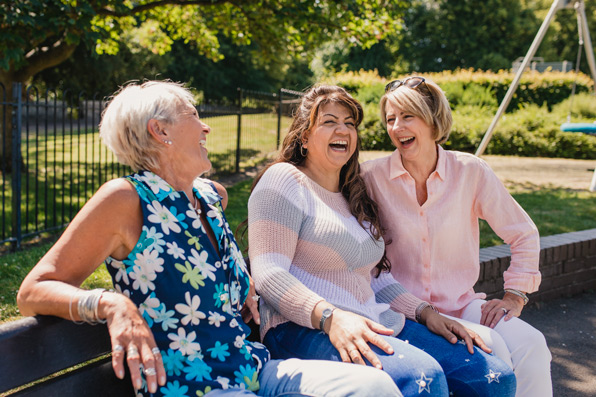We all know that crows feet, creaky joints and grey hair are a natural part of aging, but what happens to your vagina as you age? Probably more that you’d expect!
Dr Alex Eskander, Consultant Gynaecologist here at The Gynae Centre has more than 30 years of experience and is renowned in the field for his expertise. He says: “It is good for women to be prepared for the changes that happen to the vulva and vagina as they age so they can take the necessary steps to make themselves more comfortable and, in some cases, help to delay or prevent some of the changes that happen with age.”
The menopause commonly begins at around 50 years of age. This is usually preceded by perimenopause, which can start as early as 45 years of age. The perimenopause may be manifested by heavy periods, short cycles or even irregular infrequent long cycles, mood swings, insomnia and irritability. These symptoms are due to fluctuating hormone levels and a decline in the female hormone, estrogen, due to irregular ovulation.
You may notice varicose veins:
Particularly for women who’ve been pregnant, you may notice varicose veins on the vulva due to weakened vein valves.
Muscles supporting the pelvic floor weaken:
Muscle wastage naturally happens as we age – and this includes the muscles supporting the pelvic floor. As these muscles weaken women may experience a decrease in pelvic floor strength which supports not only the bladder and uterus, but the bowel too. This can lead to issues like urinary incontinence or even vaginal prolapse.
An increase in body weight can also put pressure on the pelvic floor so maintaining a healthy weight can be useful in preventing this, as can doing pelvic floor exercises on a regular basis. Although these can’t fix any existing issues, it can certainly be helpful in preventing future issues.
Pubic hair changes in appearance:
Along with the hair on your head, the pubic hair naturally thins and becomes more sparse (which may be welcome news for some), and also greys along with other bodily hair.
Appearance of the vulva changes:
As the body gets older and estrogen levels decrease, the body loses fat and collagen and the result is that the skin and tissue of the vulva and labia becomes thinner and look less plump. This loss of fullness is completely normal, and the labia may also become smaller and paler due to decreased blood flow to the area. It can be useful to avoid harsh scrubs when washing the area in order to avoid aggravating the skin and ensuring maximum comfort.
You may get urinary tract infections (UTIs) more frequently:
The bladder is also under the influence of estrogen, and a decrease in this will result in bladder atrophy which can lead to recurrent infection, urgency and frequency of urination.
You become more susceptible to vaginal infections:
The hormonal changes that occur as a woman ages and goes through menopause can lead to atrophy of the vaginal wall (thinning) and affect the delicate pH balance of the vagina, as it stops making as much good bacteria, which fights off the bad bacteria. When the ecosystem of the vagina is altered, it leaves women more prone to vaginal infections like bacterial vaginosis.
Sex drive may decline:
For many women, menopause causes a lowered libido, though every woman is different. Libido is affected by so many factors, from hormones to emotional state. Speaking of sex;
You may notice your vagina feels drier:
That pesky decline in estrogen level is responsible for many changes in the body, including a drier vagina and less lubrication during sex. This is one of the most frequently reported symptoms of the menopause. The dryness can be irritating, and can lead to an itching or burning sensation. But vaginal dryness can have a real impact on your sex life. Sex with a dry vagina is painful and when your body anticipates pain the muscles tighten, contributing more to the discomfort and pain. Vaginal moisturisers are available for general use, and it’s recommended that when you have sex, more time is spent on foreplay. Water soluble personal lubrication should also be used to help relieve any discomfort. If these don’t work vaginal estrogen, which comes in cream pessary or tablet form) can be prescribed.
Sex feels different:
With age the vagina becomes less elastic, shorter and narrower as the tissue constricts due to the lack of estrogen. The vaginal opening also becomes smaller. These often mean less pleasurable sex but regular sexual activity can actually help prevent these changes, As the phrase goes: If you don’t use it, you lose it!
Many women suffering from the above symptoms can benefit from Hormone Replacement Therapy, also known as HRT. A simple and effective treatment which uses estrogen and progesterone, HRT can provide very effective relief from the symptoms of menopause.
If you are experiencing any of the above and would like to discuss symptoms or get treatment for menopause, give our friendly admin team a call on 020 7580 8090.






